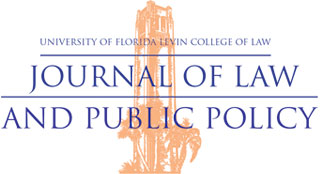
Abstract
When people die intestate, their real property is distributed to their heirs based on the state’s default intestacy laws, which can result in the creation of “heirs’ property,” a unique form of tenancy in common ownership. Heirs’ property presents challenges such as highly fractionated ownership and cloudy title, making it challenging for cotenants to sell or improve the property. The situation is exacerbated when the property is passed down with clouded title, as each heir equally owns a share of the property and must agree on all major decisions affecting the property. Florida’s current law presumes that the possession of one cotenant is the possession of all cotenants unless there is evidence of ouster and adverse possession. In practice, this statute creates additional hurdles for a tenant in common to adversely possess against another cotenant, compared to a stranger who does not jointly own the property with the true owner. This Note proposes a new adverse possession statute, which mirrors Section 105.615 of the Oregon Statutes (2023), allowing a tenant in common to adversely possess against all cotenants after twice the duration of exclusive possession and full payment of property taxes, while removing the notice requirement and presumption of possession for all cotenants. As a result, the statute will reduce the burden of proving adverse possession for cotenants and enable adverse possession to function as an efficient title clearing mechanism for heirs’ property.
Recommended Citation
Pope, Kathryn
(2023)
"Ousting Heirs: Amending Florida's Adverse Possession Statute to Remedy the State's Heirs' Property Problem,"
University of Florida Journal of Law & Public Policy: Vol. 34:
Iss.
1, Article 3.
Available at:
https://scholarship.law.ufl.edu/jlpp/vol34/iss1/3